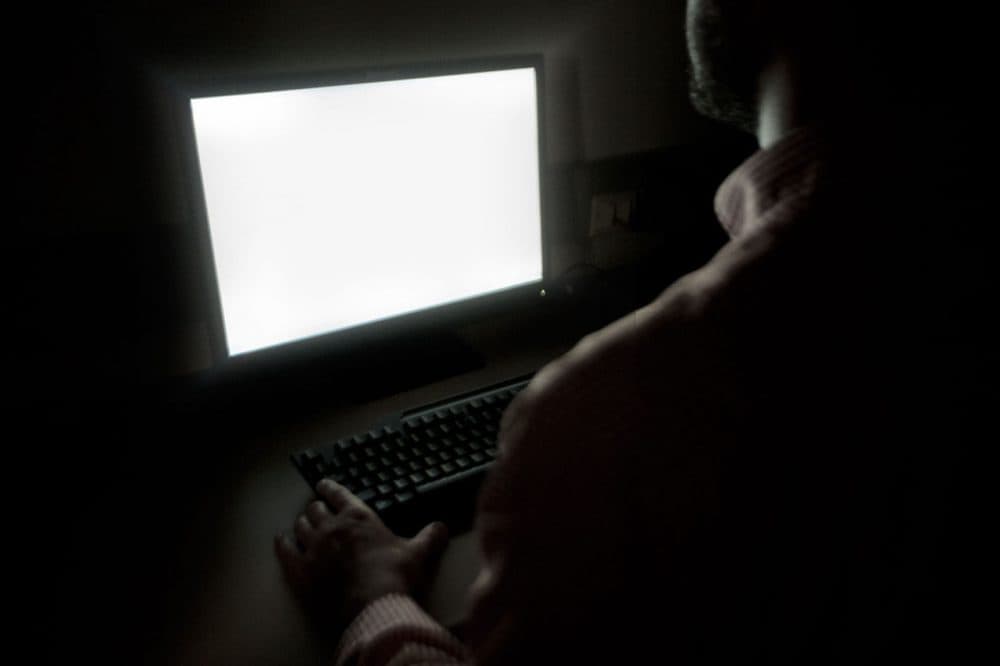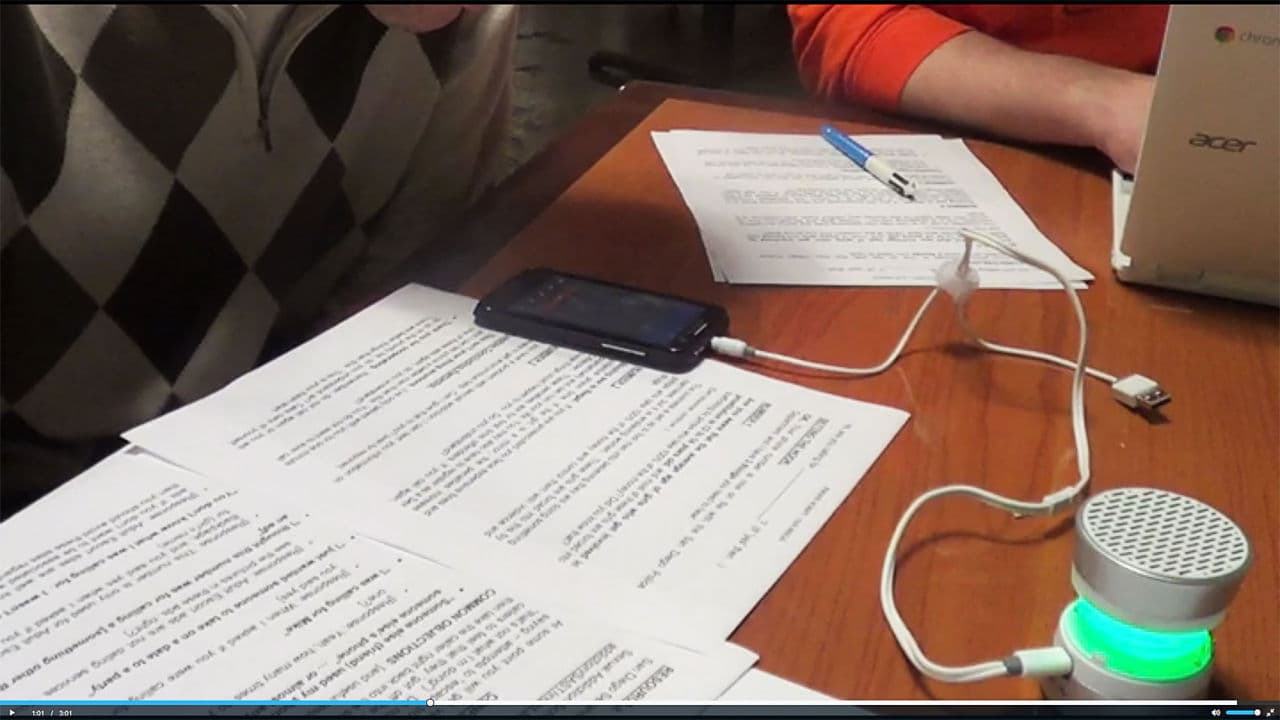Advertisement
'People Don’t Want To Believe It’s Happening Here': How Boston Is Targeting Sex Buyers

Part 1 of a two-part series. Here's Part 2.
BOSTON — The ad has only been up for a few minutes, and Tom Perez's phone is already ringing with calls and beeping with text messages.
"This is number, I think, four. I'll just keep shutting it off," he says.
The noisy phone is the sound of the sex trade in Boston.
The calls and messages are responding to an online ad selling a sexual encounter. The ad suggests a woman named "Monique" is available for a meetup in Greater Boston. It is one of hundreds of ads placed every day.
But in this case, the ad is not real. It's a decoy targeting sex buyers, placed by Perez, an anti-sex trafficking activist.
"We’re trying to help [buyers of sex] realize that this is illegal and that it also invites some associated other illegal activities -- gangs and that sort of thing," Perez says. "So, whether they realize that or not they’re inviting this kind of behavior into their communities."
Perez, in his mid-50s, is a former football player-turned-pastor and a father to three daughters. He's the founder of the EPIK Project, which stands for Every Man Protecting Innocent Kids, and is based in Portland, Oregon. He's placed many such decoy ads before.
This is the idea: Buyers respond to the phony ads, and instead of talking to someone ready to line up an illegal sex encounter, the buyer speaks to male volunteers Perez trains to "disrupt" that online transaction.

"We talk about the fact that it’s not a victimless crime. That it’s inherently harmful to the women who are bought and sold," he says. "We’re trying to bust some of the persistent myths that buyers tend to believe, that lead them to buy."
Perez wants to set up "patrols" in Boston, and he's recruiting and training men for a team here.
"I knew that people were being bought and sold for sex in places like Cambodia and Thailand -- you know, faraway places," he says. "But I realized a few years ago, learned, that it was happening right in my own backyard. When I started to learn about what it was and what it meant and what it did to the community, I couldn’t look away. I had to try and do something."
A call interrupts — another interested buyer in the Boston area.
Perez goes on: "I’ve learned that it’s happening in my own community, it’s happening here, it's happening everywhere, um, and it’s prolific, especially in the online space."
Advertisement
In one hour, there are 40 text messages, 13 voicemails and a total of 20 calls on his phone — more than 60 inquiries for illegal paid sex. And it's mid-afternoon on a Thursday -- not exactly what you might think is prime-time to buy sex.
Perez says the response is typical based on other decoy ads they've placed in Boston and other cities.
"People don’t want to believe that it’s happening here, that it's as big a deal as it is, but it's happening right here, right now, obviously as we’ve been sitting here," he says. "In some ways it’s kind of the elephant in the room people don’t want to believe it’s actually going on, but it’s here, you heard it."
'If There Were No Buyers, There Would Be No Business'
In 2011, state legislators passed an anti-human trafficking law that targets those who profit from commercial sex.
And recently, Boston Mayor Marty Walsh has taken a firm, public stance against trafficking, placing the city at the forefront of a nationwide crackdown.
"The goal is to eliminate sex trafficking in the city of Boston and eliminate sex trafficking in Massachusetts," Walsh recently told us during an interview in his City Hall office. "We can show other cities around the country a blueprint to a way of eliminating sex trafficking."
The city is a founding member of the CEASE Network, which stands for Cities Empowered Against Sexual Exploitation. The network is comprised of 11 cities nationwide. The aim, over two years, is to reduce demand for purchasing sex online by 20 percent and street activity by 80 percent.
Organizers say the plan is to target buyers.
"If there were no buyers, there would be no business," says Lina Nealon, founding director of the nonprofit Demand Abolition, a Cambridge-based group spearheading the CEASE Network's plan targeting buyers.
"Buyers are the ones who are fueling this exploitative, inherently violent industry by putting cash in the pockets of pimps and traffickers," she says.
So, to push back against commercial sex:
-- CEASE Network partners plan to launch social media campaigns;
-- Boston police plan online stings targeting buyers for arrest;
-- and by September, Perez, of the EPIK Project, hopes to have a locally based "patrol" of eight volunteers to answer phone calls and interrupt the purchase of sex.
Lack Of Data, But 'So Many Websites'
One challenge for authorities is the lack of firm numbers available for how many people are engaged in the sex trade in Boston.
For instance, two years ago, an inter-agency task force recommended that the state develop a comprehensive system for monitoring sex trafficking.
"Numbers are always difficult because so many victims don't self-report," says Boston Police Sgt. Det. Donna Gavin, head of the department's Anti-Human Trafficking Unit. "So that's always been a challenge, I think, across the country. But we know that it's pervasive."
In Boston, commercial sex used to be fairly open. In the 1960s and '70s the adult entertainment district near Downtown Crossing was known as the Combat Zone. There was on-the-street solicitation of female and male prostitutes, peep shows and strip clubs. In 1976, The Wall Street Journal labeled the Combat Zone “A Sexual Disneyland."
Today, the Combat Zone is gone, but solicitation is not. It’s just more unseen because it’s largely online.
"We know when we look on websites, on the online business, there's many, many postings every single day and there's many websites," Gavin says.
The website Backpage.com offers an example of just how easy it is to buy sex illegally in Boston. Earlier this week, in the Backpage section where sex is advertised in the Boston area, we counted 297 ads that were posted within just a few hours, offering various sexual encounters.
Following the murder of a woman at a hotel in Burlington this summer, allegedly by two men who used Backpage to contact her, Boston's Mayor Walsh and state Attorney General Maura Healey called on Backpage to take down the sex ads. So far, it hasn’t.
We couldn't reach Backpage for comment.
But Healey says she's committed to seeing the effort through.
"I’ll go as far as we need to go to see that [site] come down because what we’ve seen here through our investigations and cases, the overwhelming majority of them involve advertisements placed on Backpage," she says. "This is the site that is facilitating this criminal conduct. We’re talking about the exploitation and trafficking of human beings."
Resources:
This segment aired on August 13, 2015.

